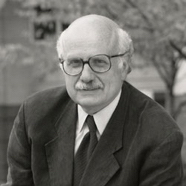Why The Manhattan Criminal Trial Is So Dangerous For Trump
“The allegations are in substance, that Donald Trump falsified business records to conceal an agreement with others to unlawfully influence the 2016 presidential election.” – Judge Juan Merchan
 In that single sentence, Judge Juan Merchan summed up the essence of the criminal case brought against former President Donald Trump by Manhattan D.A. Alvin Bragg.
In that single sentence, Judge Juan Merchan summed up the essence of the criminal case brought against former President Donald Trump by Manhattan D.A. Alvin Bragg.
Judge Merchan, who will hear the case, made that statement in a letter this week to the counsel in the case. Trump’s trial is scheduled to begin on Monday, despite numerous failed efforts by Trump to delay the trial.
Some of Trump’s motions to delay are still pending but, to date, they have not succeeded in postponing the Monday start date. Trump, like all criminal defendants, is required to be in the courtroom throughout the trial, which may take up to six weeks.
As Judge Merchan plainly stated, this case is about Trump’s alleged secret effort to influence the 2016 presidential election – an election Trump narrowly won.
The case is often described as “just a hush money” case. However, providing hush money itself is not a crime.
It is how that hush money was recorded in business records and, more importantly, what it was allegedly used for that are the focus of Trump’s indictment and criminal trial.
There isn’t much dispute that Trump made payments to his then-lawyer Michael Cohen – there are Trump-signed checks to Cohen in evidence – reimbursing Cohen for paying $130,000 to adult entertainer Stormy Daniels. And there isn’t much question that the checks were falsely described on Trump business records.
But the important question is: Why did Trump make these payments?
According to the Statement of Facts submitted by D.A. Bragg’s office:
“From August 2015 to December 2017, the Defendant [Trump] orchestrated a scheme with others to influence the 2016 presidential election by identifying and purchasing negative information about him to suppress its publication and benefit the Defendant’s electoral prospects. In order to execute the unlawful scheme, the participants violated election laws and made and caused false entries in the business records of various entities in New York. The participants also took steps that mischaracterized, for tax purposes, the true nature of the payments made in furtherance of the scheme.”
The indictment charges Trump with committing 34 felonies.
Falsifying business records in New York is a misdemeanor. But falsifying business records in furtherance of another crime is a felony that can result in jail time. (The additional crime does not have to be charged or proven for a misdemeanor to be upgraded to felony.)
The indictment charges Trump with falsifying business records “with intent to defraud and intent to commit another crime and aid and conceal the commission thereof.” That’s why Trump faces 34 felonies, not 34 misdemeanors.
Cohen’s payment of $130,000 to Daniels to keep secret her affair with Trump was made on October 27, 2016, just 12 days before the 2016 presidential election.
The payment came just three weeks after the leak of an unaired Hollywood Access tape showing Trump making vulgar comments describing his mistreatment of women.
The tape’s release resulted in a firestorm of criticism of Trump with Republican critics calling on him to drop out of the presidential race.
If Trump’s affair with Stormy Daniels had been made public – on the heels of the outrage triggered by the Access Hollywood tape and less than two weeks before the election – it could easily have cost Trump the election.
According to The Washington Post, Trump won Michigan by 0.2 percent, Pennsylvania by 0.7 percent, and Wisconsin by 0.8 percent. Only a small shift in voters in these three battleground states would have resulted in Trump losing the election.
Trump had every incentive to prevent Daniels from disclosing their affair.
Cohen later pleaded guilty to campaign finance violations in making the payment to Daniels and another payment to Karen McDougal, who also allegedly had an affair with Trump.
Cohen made the payments, according to the Justice Department, “in order to influence the 2016 presidential election. In so doing, he coordinated with one or more members of the campaign, including through meetings and phone calls, about the fact, nature, and timing of the payments.”
Cohen had no personal reason for making the payments.
But, Trump did.
That is the strong case that Alvin Bragg is expected to make – that Trump falsified business records in an effort to conceal payments he made to influence the 2016 presidential election in violation of campaign finance laws, including campaign finance disclosure laws. These are the alleged campaign finance violations in the Trump case, along with other violations, that sent Cohen to jail.
We don’t know what, if any, effect a Trump conviction might have on voters. But, if Trump is found guilty prior to the election, voters this fall will have to decide whether or not to vote for a convicted felon to hold the nation’s highest office.
____________
Fred’s Weekly Note appears on Thursdays in Wertheimer’s Political Report, a Democracy 21 newsletter. Read this week’s and other recent newsletters here. And, subscribe for free here and receive your copy each week via email.